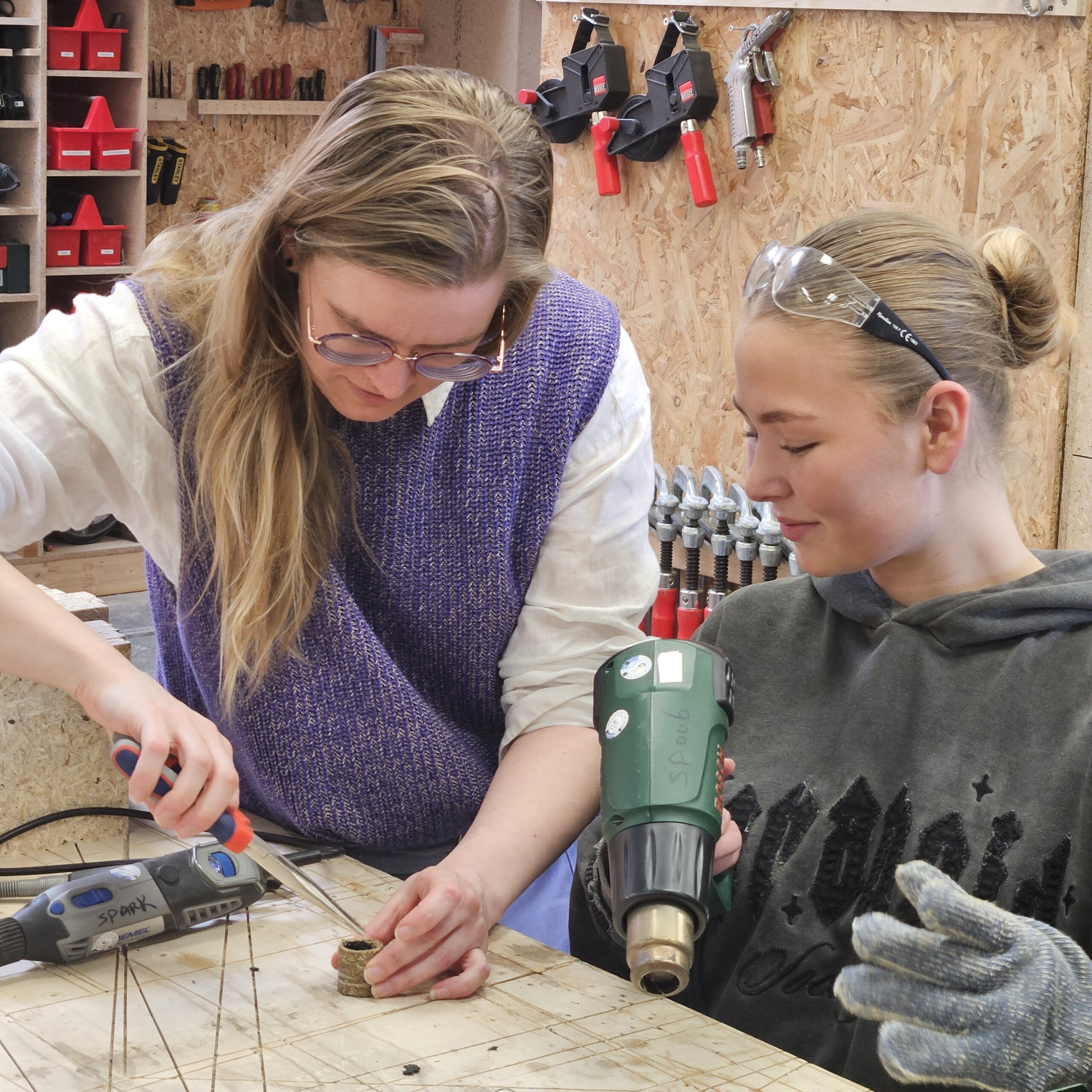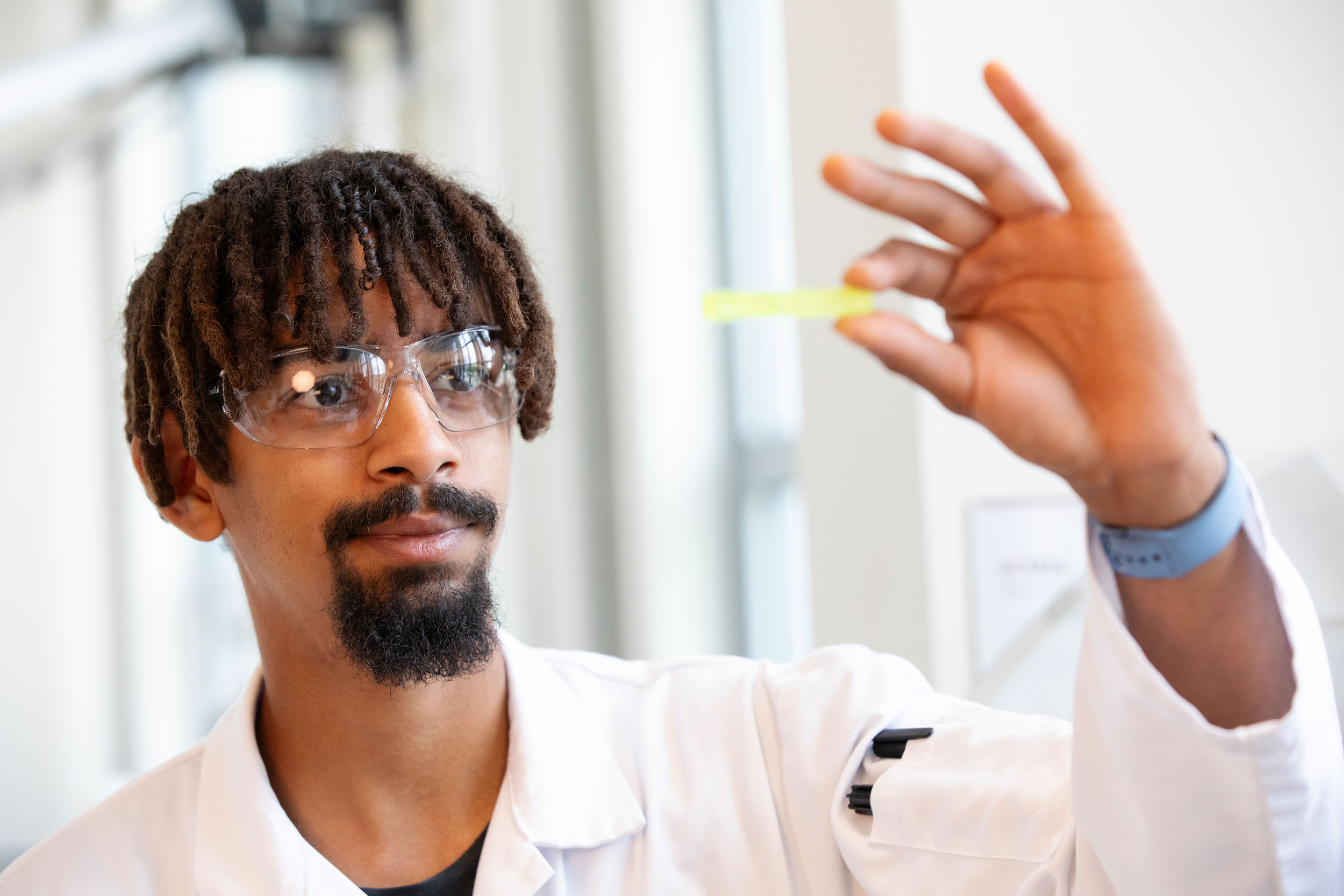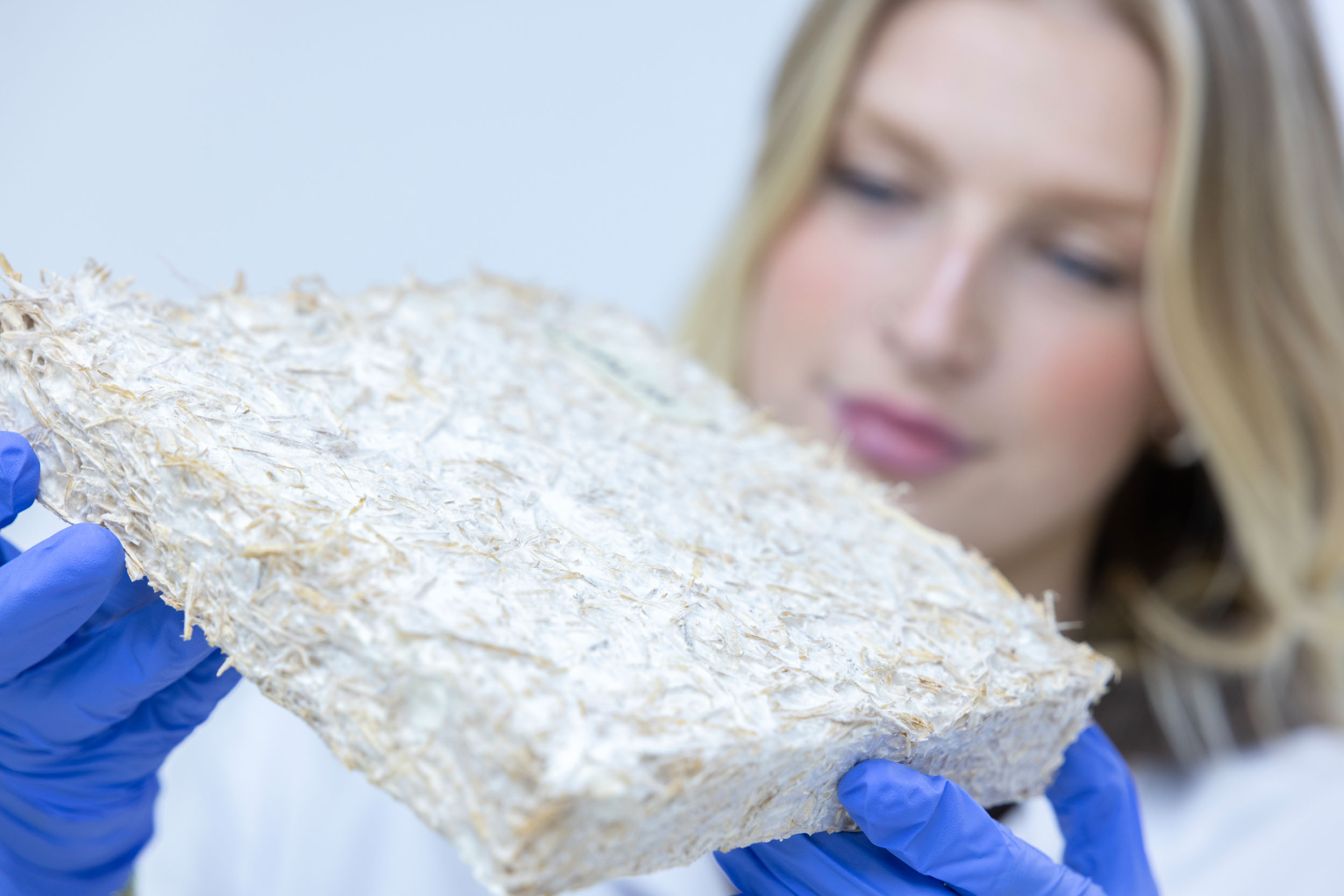To spark their creativity, the students were given a deliberately broad assignment by Living Greenlab and SPARK Lab: “Choose an existing product and design a circular, biobased, or functionally simplified improvement,” explains Jasper Sluis, project leader of Living Greenlab at MNEXT. “The students decided for themselves what they wanted to improve: the entire product or just a small component.” This freedom required initiative. “They were truly in charge,” adds Iris Papenborg, lecturer at Koning Willem I College. “Planning, experimenting, making choices, and persisting – that requires courage, and that’s exactly what they learned the most from.”
Fela Mooijman, Industrial Product Design student, experienced it that way too: “I noticed we were given much more freedom than at school, where we get more guidelines. In the beginning, it was a bit of searching, but once I knew what I wanted to make, I really enjoyed it.”
Personal designs with a sustainable twist
Because the students chose their own products, the result was original, personal designs that resonate closely with their everyday lives. This is evident in several prototypes, such as the 3D-printed makeup brush by Guusje Aarts: “I often throw away makeup brushes as soon as they get dirty, which I think is a waste. That’s why I designed a brush with a magnet between the top and bottom. This way, you only replace the used part, which is much more sustainable.” Other projects included a bioplastic protein powder scoop, a comb made from moss and hemp fibers, and eartips for earphones with improved fit and sustainability. All designs will be on display in the coming weeks on a moodboard at MNEXT in Breda, complete with QR codes linking to the students’ portfolios. This allows you to explore their stories digitally and learn more about the design process.
Researching, making, and discovering in practice
This project took place within the Sustainable Design Lab module of the Industrial Product Design program. The students worked across three locations: their own school, MNEXT Living Greenlab, and SPARK Lab. The proximity of the Koning Willem I College to the two workspaces in Den Bosch made collaboration easy. At the Living Greenlab, students attended workshops on biobased materials such as bioplastics, lime-hemp composites, and biocomposites. Above all, they had ample opportunity to experiment themselves, guided by MNEXT researchers Annine Rozema, Jasper Sluis, Joris Deliën, and Hans de Wit. “We don’t give students ready-made answers,” explains Jasper Sluis. “We challenge them to make, test, and improve their designs along the way. That not only produces beautiful prototypes but also builds confidence. This is exactly how education should be, in our view.”
Guest lectures from experts such as Biobased Resources & Energy lecturer Jappe de Best and designer Laura Barros provided further depth in circular design and the material transition. For some students, a visit to the Biopolymer Application Center (BAC) in Breda offered additional inspiration: “I could touch and examine the materials there, which really made me think differently about my own design,” says Fela.
Final presentation, but not the end
Although the module officially concluded with a joint presentation, many students did not see it as the end. Some want to further develop their prototypes, while others are curious about new materials and techniques. Tara Steenbakkers: “I made bioplastic from banana peel, but now I want to explore whether I can actually make a functional protein scoop from it.” Guusje also wants to improve her makeup brush: “In my free time, I want to redesign the handle to be more attractive and higher quality. You don’t replace that part, so it really needs to last.”
“I loved seeing how the students took initiative,” says lecturer Papenborg. “They went beyond what was asked of them. They experimented with new materials, planned and executed their ideas independently, and really took the space to create something of their own. That, to me, was the most beautiful part of this project.”
Take a look at the different designs
| Guusje Aarts | Sustainable Makeup Brush |
| Sem Kreber | The aglet, the small end piece of a drawstring on, for example, a hoodie |
| Fela Mooijman | Biobased hair clips |
| Mabel van Houtum | A biobased haircomb |
| Nick van Heek | Eartip for earbuds |
| Wessel van Iersel | Keyboard keycap using 3D software |
| Janneke van der Sande | Cardsleeve |
| Jedy van Schaik | Knive scales out of biocomposite |
| Tara Steenbakkers | A protein powder scoop |







